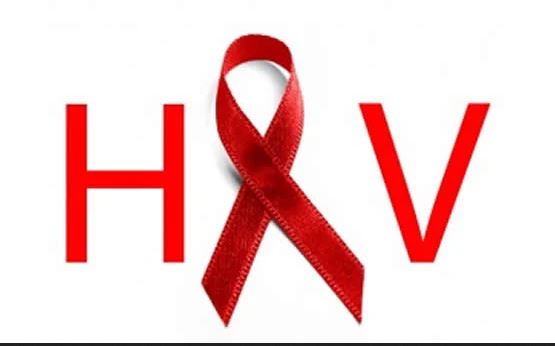
Dr Adebobola Bashorun, the National Coordinator, National AIDS and STDs Control Programme, has said that by 2030, Nigeria should be moving towards epidemic control of HIV, The PUNCH reports.
He said this at the end of pilot activity dissemination of the Strengthening HIV Self-testing in the Private Sector project of the Society for Family Health, a Non-Governmental Organisation, on Tuesday in Abuja.
According to Bashorun, Nigeria has, in the past 30 years, recorded valuable progress in the reduction of HIV prevalence.
He said, Basically, from 2010 until date, the government, with the help of partners, has done a lot on prevention and treatment.
“We have been able to escalate our information. So I think these things have worked. So by 2030, we should be moving towards a form of epidemic control.
“Epidemic control does not mean there is no disease, but it means your system and everything are controlling the disease to a level that you can manage and sustain the progress you have made over the years,” he said.
He said that one of the strategies employed included an increase in treatment coverage. Bashorun also said that, from a scientific perspective, the more people were treated, the less they could infect others.
“So if somebody is positive now and the person is on treatment, the probability that the person will infect you is very low because the viral load that causes the virus would have been crushed.”
About the self-testing kit, he said that the emphasis is on testing, as knowing one’s status is the first step to getting care.
According to him, the programme gives one the ability to test oneself without having to go to a facility.
Bashorun said that its availability over-the-counter, like pregnancy test kits, would ensure that people knew their status early enough.
The Managing Director, SFH, Dr Omokhudu Idogho, said that promoting HIV self-testing alongside other crucial elements was important.
He was represented by Mr Kenechukwu Eruchalu, Deputy Managing Director, Operations and Service Delivery of SFH.
Idogho said that it would create a consumer centric ecosystem and increase access to and uptake of HIV self-testing.
“I am proud to report that we have made significant strides in reaching our target populations, specifically sexually active males and females ranging between the ages of 18 and 34, as well as men aged 35 and above.
“Our implementation sites in Lagos and Abuja have witnessed remarkable progress. Through community mobilisation efforts, we have successfully reached over 58,000 individuals, creating awareness and driving engagement.
“Additionally, our community activation initiatives have impacted the lives of over 50,000 individuals.
“Furthermore, we have recovered impressive sales of more than almost 14,000 HIV self-testing kits through physical and online pharmacies, as well as e-commerce,” he said.
He said that stakeholders should leverage their collective expertise and innovative approaches by working together to overcome challenges, optimise investments, and ensure the successful scaling up of their intervention.
The SHIPS Project Lead for Nigeria, Mr Dennis Aizobu, said that the pilot stage of the project, carried out in Lagos and Abuja, would be scaled up to 13 in other states.
According to him, with the ambitious goal of achieving the UNAIDS 95:95:95 target by 2030, the project seeks to identify crucial obstacles hindering the scale-up of private-sector HIVST and develop innovative models to overcome them. Aizobu said:
“We think that using the private sector would help to reach the last set of people that need to be reached because it provides convenience, accessibility and sustainability.
“These are not kits that the government will be able to provide for everybody as required but we can get it done through the private sector.
“The private sector has a way of driving down prices and also has a capacity to scale, which means the kits can be everywhere within the country.
“It can be in a pharmacy, a patent vendor shop, so putting it in the private sector channels is what will give us the results we want.”
He said that over the years, Nigeria had been using several other channels of technologies or means, like conventional HIV testing, community testing, to drive down the prevalence of the disease.
Aizobu said that, for people who want confidentiality and convenience, those methods might not work for them, which was what informed the idea of the self-testing kits.
The News Agency of Nigeria (NAN) reports that the SHIPS project is funded by the Children’s Investment Fund Foundation through Population Services International.
You may be interested

2024 CHANQ: History Not Kind To Us Against Ghana –Ogunmodede
Webby - December 24, 2024Home-based Super Eagles coach Daniel Ogunmodede says history has not been good to Nigeria when they face rivals Ghana.The home-based…

Ex-Chelsea Star Oscar Returns To Boyhood Club Sao Paulo
Webby - December 24, 2024Former Chelsea midfielder Oscar is returning to his Brazilian boyhood club Sao Paulo after 14 years, which included a long…

‘I’m Incredibly Proud’– Arokodare Talks Up Genk’s Unbeaten Home Streak
Webby - December 23, 2024Tolu Arokodare is full of excitement followingGenk’s historic victory over Anderlecht, reports Completesports.com.Sunday’s win at the Cegeka Arena was the…


















![American Pastor, David Wilson Seen Eating The Box Of Woman Who Isn’t His Wife [Video]](https://onlinenigeria.com/wp-content/uploads/2019/10/american-pastor-david-wilson-seen-eating-the-box-of-woman-who-isnt-his-wife-video-150x150.jpg)









